
Our Frequently Asked Questions page is the most comprehensive compilation known to exist anywhere online. Most asset locators would prefer that we did not reveal so much inside information about our business but we are doing so as a public service to counter the staggering amount of misinformation circulating about unclaimed money funds and asset recovery companies.
However, if you have questions about your unclaimed funds we haven't answered here, please contact us at (800) 579-5050 or Info@CashRecoveryNow.com.
Why has Cash Recovery Now contacted me?
Our researchers have identified recoverable money held by an agency that we believe belongs to you. This may sound much too good to be true but it really is true. A letter or phone call from our company is very good news indeed!

How can Cash Recovery Now help me recover my money?

Cash Recovery Now conducts research that locates significant financial assets that are unknown or unclaimed by those who are legally entitled to recover them. We then reach out to the rightful claimants to offer our services to recover their money in exchange for a reasonable and lawful contingency fee. In the unlikely event that no money is recovered, there is no fee.
What must be done to recover my money that's being held in an unclaimed money account?

A valid claim must be filed with the holding agency. If the agency escheats, the claim must be filed before the deadline prescribed by law.
May I file my own claim?
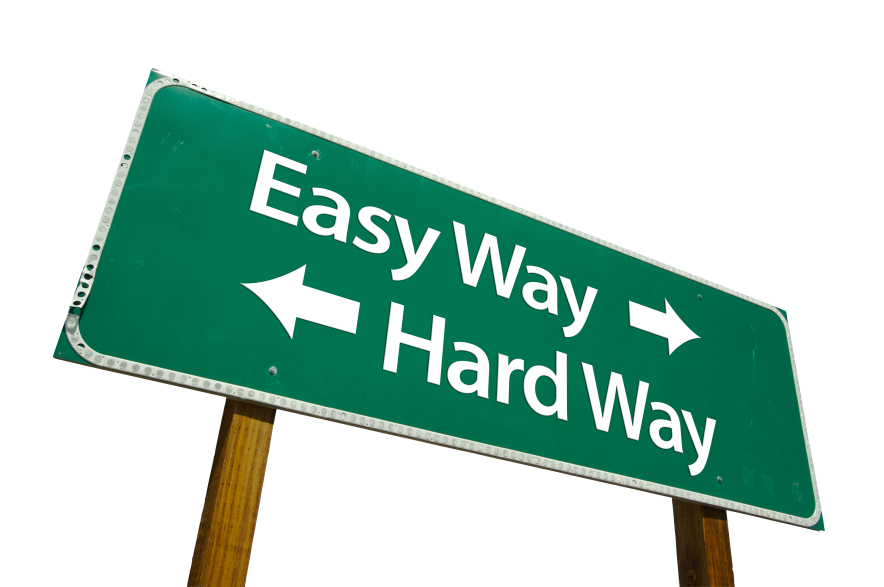
In order to file your own claim successfully, there are two prerequisites. First, you must discover the identity of the agency that's holding your money. This search is often challenging because there are thousands of unclaimed money funds nationwide, many difficult to find or totally hidden from view. Second, you must master the claim process which is often lengthy, cumbersome, confusing and frustrating. There are many pitfalls for the unwary that lead to claims that are denied.
We know the identity of the agency that's holding your money and we know the fastest way to get it back. We are claim experts who understand all the proper procedures and have developed excellent working relationships with the heads of the claim review units. These personal contacts are indispensable for success whenever problems arise.
What agency is holding my missing money?
The name of the agency will be revealed once our agreements are signed. However, we'll disclose immediately the approximate value of the money so you have as much information as you'll need to make an informed decision.
Why can't you tell me the name of the agency that's holding my money?
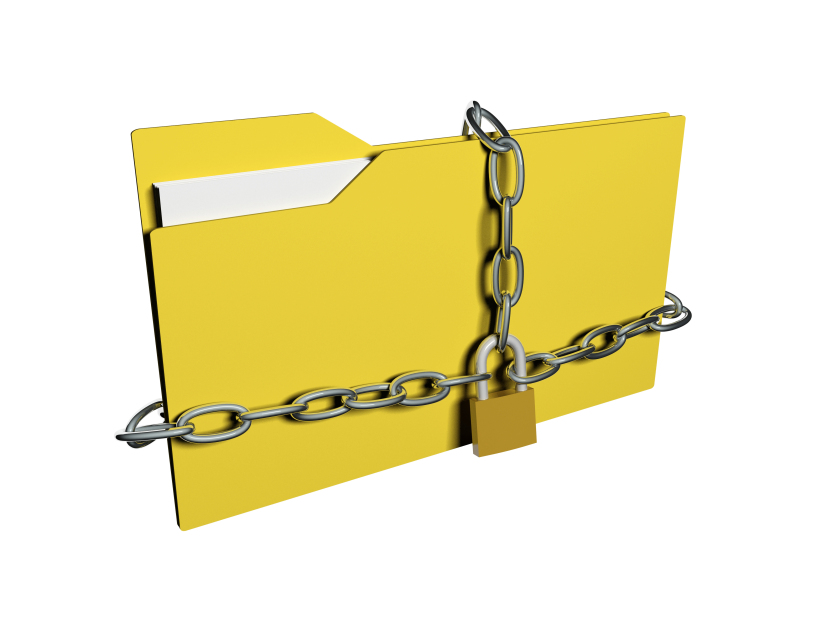
Before we reach out to potential clients, we've already spent money obtaining, converting, editing and researching unclaimed property databases. This research is both time consuming and expensive and it's done entirely at our own expense because we can't always be assured we'll be the company that's hired.
After finding substantial unclaimed funds, we have the additional expense of tracing and contacting the rightful recipients. This is difficult and expensive work because the last known address we've been given is often wrong.
After contacting the potential clients we are able to find, we have the difficult task of convincing them that they really do have the right to recover money. This step entails numerous time-consuming letters, e-mails, faxes and phone calls, again without any guarantee they we'll be hired.
All these preliminary expenses that are normally unknown to potential clients are the primary reason we don't tell them the source of their unclaimed funds until we receive a signed agreement. We don't enjoy keeping potential clients in the dark at first but we do so because our company needs to protect its investments.
Why doesn't the government agency contact me directly?
The agencies claim they are unable to trace all the rightful recipients due to a lack of resources but why should they be expected to go to extraordinary lengths to find people when statutes entitle them to collect interest from the unclaimed assets as long as the money remains under their control? To make matters worse, after the deadline has passed, the money becomes the property of the holding agencies who escheat and can no longer be claimed. In other words, they profit enormously when claims are NOT made.
Every month we see hundreds of rightful claimants lose all rights to their claims through a legal process called escheatment. In many cases these claimants had been contacted by third parties and informed of the forfeiture but took no action to stop it.
Is it really true these government agencies lack the resources to search for people who are owed money?

The claim review units within the government agencies do have limited budgets that in most cases prevent them from tracing the rightful owners. Some agencies have tens of the thousands of accounts so a mailing campaign would be very time consuming and expensive. In fact, much of the mail would be returned as undeliverable because the last known address in their records is often wrong. Telemarketing campaigns would be even more futile because a large number of workers would be required to make the calls, most of the phone numbers dialed would be outdated and people who were contacted successfully would dismiss the calls as ripoffs.
What are 20 of the most shocking unknown facts about unclaimed money?
Here's the list in order of importance to claimants:
1. There's at least $100 billion dollars languishing in unclaimed money funds within the United States. This total doesn't include the untold tens of billions that have already been escheated (confiscated) by governments because claimants failed to file a valid claim to recover their money before a deadline.
2. Although there are thousands of unclaimed money funds in the United States, the only unclaimed money fund most people know about is the one run by their state's Controller's Office.
3. Although asset recovery companies work on a contingency fee basis with no advance fees, most entities that have been informed that they have the right to claim money languishing in a money fund take no action whatsoever to recover their money because they believe the free notification they've received is a scam. Many claimants are entitled to file multiple claims because the mistake that led to their lost money happened more than once.
4. A conspiracy of silence exists about the "hidden funds". Governments don't publicize them because they don't want to be inundated with claims and need the escheatment revenue and recovery companies don't advertise them because they want to be hired to recover the money while battling as little competition as possible.
5. Very few people or entities complain about the loss of their escheated money because rarely do they ever discover that the escheatment has taken place.
6. Several hundred companies like Cash Recovery Now work in the field of unclaimed money recovery. The overwhelming majority of these businesses are legitimate companies performing a valuable service, working to reunite entities with their money before it's escheated.
7. It's very difficult to reunite the rightful claimants with their money! After contacting the potential clients they are able to find, asset recovery companies have the difficult task of convincing them that they really do have the right to recover money. This step entails numerous time-consuming letters, e-mails, faxes and phone calls, again without any guarantee they'll be hired. After they are hired, they must also bear the additional expense of researching the claim process, obtaining all the required documents from their clients and filing their claims. It's actually much easier to convince people to pay money they owe than it is to get them to accept life changing money!
8. Some states have passed laws that criminalize contacting individuals to provide them a free notification that they have the right to recover money they've lost! For example, as a result of amendments made to the South Carolina Family Privacy Protection Act (S.C. Code Ann. §30-2-10 et seq.) by the South Carolina General Assembly in 2017, local governments must take reasonable measures to ensure no personal information such as a person's name and home address is obtained from a public record and used for commercial solicitation. S.C. Code Ann. §30-2-50 provides that it is a criminal offense for a person or private entity to use personal information as described above for commercial solicitation.
9. Many claimants are persuaded not to pursue their unclaimed money claim by the very professionals they trust the most because most of them know no more about unclaimed money recovery than the average person on the street. They tell claimants, "You don't need the asset locator's help to find your unclaimed money. Just do an unclaimed money search at the State Controller's website. Type your name into the search engine there to find your unclaimed money, if you have any".
10. Misleading information disseminated by state government officials prevents many claimants from finding and recovering their lost money. State Controllers create the false perception that they control all the unclaimed money in their states so there's no need for claimants to hire asset recovery specialists.
11. Government agencies are NOT required to trace the rightful claimants no matter how much money is being held. In any event, the claim units lack the resources, skills or motivation to trace and contact claimants.
12. Unlike Publisher's Clearing House winners who are thrilled when notified they've won millions, most claimants react with anger and extreme skepticism when told over the phone they have the right to recover life changing money. They may dream about winning the lottery or receiving a large unexpected windfall but when they're informed that a research and recovery company has located their missing money AND will work at its own expense to recover the money with absolutely no up-front compensation, they still somehow convince themselves it isn't real and take no action!
13. Although many officials play down the difficulties of the claim process, claims to recover money can be very complicated. Successful claims require knowledge, experience and often persistence as well. Many claims are denied that would have been approved had they been handled correctly by a professional.
14. Notification letters mailed via the U.S. Postal Service are the most credible form of communication about unclaimed money because scammers rarely send mail anymore because of the enormous expense of direct mailing and the serious penalties for mail fraud. Scammers today prefer e-mail, text messaging, social engineering strategies and telemarketing rather than snail mail so the most weight should be given to solicitation messages that have been mailed.
15. Asset recovery companies like Cash Recovery Now NEVER advertise because they don't want to be contacted by people looking for their lost money. Because there are thousands of unclaimed money funds nationwide, many difficult to find or almost totally hidden from view, starting with people and then looking for their unclaimed money would be an impossible task so they never work that way. They work in reverse ... they find the unclaimed money first and then contact the claimants.
16. Although untold billions are confiscated by governments through escheatment every year, not a single book has been written about the subject other than a long-forgotten scholarly treatise titled the H. R. 2443; The Equitable Escheatment Act of 1993. Search "Escheatment" at Amazon books or Barnes and Noble (bn.com) to see for yourself.
17. There is no nationwide database of unclaimed funds because it would require a huge army of workers to create and update one.
18. Law Firms and Accounting Firms are notoriously unwilling to acknowledge that they've lost a client's money. They don't want to admit their mistakes and are fearful that they'll be required to pay the fees to recover the money so they seldom if ever exercise the simple due diligence necessary to determine if the free notification they've received is legitimate. Visiting a web site, Googling a company's name or making a short phone call to the recovery company takes only a few minutes but very few do it. Most notification letters they receive are unceremoniously thrown into the trash and as a result, life changing money desperately needed by their clients is lost.
19. Many government agencies are listed as claimants in unclaimed money databases. However, because it's almost impossible to find government employees who care enough about the matter to act and who also have the authority to hire asset recovery companies, the money remains unclaimed year after year.
20. Claimants with very common names like Joe Smith, Robert Jones or Manual Rodriguez are less likely to recover their lost money because they are very difficult to trace. Claimants with very unusual names have a much better chance to recover their money.
Several companies have contacted me about my unclaimed funds. How do I decide which company to hire?

Ask these questions about each company that contacted you:
- Will the company work on a contingency fee basis with no up-front fees?
- Will the company pay all expenses and work for free if the claim is unsuccessful?
- Does the company have a well-designed, professional website?
- Are the company's forms and contracts professionally drafted?
- Will the company disclose the identity of the holding agency immediately after their agreement is signed?
If the answer to all five questions is "yes", then you can be almost totally certain the company is legitimate.
What's the biggest mistake made by claimants when negotiating with asset recovery companies?
By far the biggest mistake is demanding a complete disclosure of all information before agreeing to sign an agreement with the recovery service. Unclaimed money research is both time consuming and expensive as is tracing and contacting the rightful recipients so to protect their investments of time and money, recovery companies should not be expected to disclose the name of the holding agency until their client agreement has been signed.
Saying to the company "Tell me who's holding my money and then I'll consider hiring you to recover it" is self defeating because the recovery company will walk away every time and work other cases rather than turn over the heart of their research to you before an agreement has been reached.
Recovery Companies have thousands of names on the databases they audit so rather than agreeing to your demands, they'll just go down to the next name on their spreadsheet. This is understandable because, if they answer, "Agency ABC is holding your money", the likely response would be, "Thank you very much. I'll handle it on my own".
If you absolutely insist they disclose the name of the agency first, the company will refuse and your money will continue to languish in the unclaimed money fund until you find it on your own and file a valid claim to recover it or it's escheated by the agency.
Is this totally real and legitimate?
Yes, it is. Since we work strictly on a contingency fee basis with no advance payments, why else would we contact you if it weren't real and legitimate? However, we understand your initial skepticism because we encounter it every day. Most people we contact are extremely surprised when first informed that their money has been languishing in an unclaimed property fund for many years AND they may actually lose the right to claim their money after a deadline has passed.
When do you provide proof?

As soon as we receive our client agreement from you, we'll immediately show you proof of the unclaimed property on your computer and disclose all the other information we've obtained from our research. If additional proof is required, you may contact the government agency directly to verify the good news.
What are the biggest misconceptions about unclaimed funds?
Misconceptions and misunderstandings regarding unclaimed property matters are widespread. To dispel these notions, the most common misconceptions as well as their corrections are listed below:
Misconception Number 1: Unclaimed money isn't difficult to find so there's no need to hire asset recovery companies.
Correction: There are many thousands of unclaimed asset funds throughout the U.S., many unpublicized or almost totally hidden from view.
Misconception Number 2: Governments hold unclaimed money forever until it's claimed.
Correction: Each year government agencies escheat (confiscate) billions of dollars of unclaimed money.
Misconception Number 3: People can usually find their missing money on websites that charge for unclaimed property searches.
Correction: There is no nationwide database of all unclaimed funds.
Misconception Number 4: A letter about unclaimed funds is probably a ripoff.
Correction: When claimants receive a professional notification letter about unclaimed money, they can be almost 100% certain that it's true.

Scammers prefer e-mail, text messaging, social engineering strategies and telemarketing rather than mail. Notification letters mailed via the U.S. Postal Service are the most credible form of communication about unclaimed money because scammers rarely send mail anymore because of the enormous expense of direct mailing and the serious penalties for mail fraud.
Why are there so many misconceptions about unclaimed money recovery?
The biggest reason is incomplete or misleading information disseminated by government officials. They may not be trying to mislead claimants but the net result of their words is the false perception that no money is owed to people who aren't listed in their fund so there's no need for people to look elsewhere for their money or pay contingency fees to companies who claim they've found their unclaimed property.
Many officials also play down the difficulties of the claim process which encourages many people to file their own claims without professional assistance which results in many claims that are denied.
Can I always rely on the unclaimed money advice offered by financial advisers?
Misinformation about unclaimed money recovery is not limited to government officials. Here's what famous financial adviser and television host Suze Orman wrote about unclaimed funds:
"When is it (a letter from an asset locator) a scam? If they are charging you. If they say, 'Send in $50 and we will show you we have $5,000 for you.' Take the thing and throw it out ... So, it's not a scam if they are not asking for money."
The truth is a letter you receive is only a scam if the company that sent it asks for money IN ADVANCE. Reputable asset locators do "ask for money" but only after the successful recovery of your money and never charge advance fees.
What legal documents must I sign?
The holding agencies require notarized documents to prove your identity and assure them that we have the legal right to represent you. The affidavits and empowering documents are limited in scope and power and pertain only to your claim.
What's in your Client Agreement?

Our Client Agreement spells out the exact terms and conditions under which we'll work to recover your unclaimed property and describes how we'll split the money if your claim is successful. It's clear and straightforward with no small print or confusing legalese. If you take the agreement to your attorney for review, we'll even reimburse you up to $100 after we receive all your executed documents. It's very important that you select an attorney who is knowledgeable about unclaimed money matters because most attorneys are not.
What response will I likely receive from my lawyer or financial adviser if I show them your letter?

If your attorney or financial adviser is knowledgeable about the unclaimed money industry, he or she will respond as follows:
"If the company that sent you the letter is reputable, you can be almost 100% certain that they really have found unclaimed money that you have the right to recover. If you give me the name of the company, I'll research them by visiting their website, reading their FAQ page, googling their name and phone number, reviewing their documents and contacting them."
"If a deadline is mentioned in the letter, it's real. Governments escheat (confiscate) billions of dollars of unclaimed money every year. In the state of Delaware alone in Fiscal Year 2013, $566.5 million was escheated from unclaimed property accounts directly into the state's General Fund. This is the third-largest revenue source in Delaware following personal income tax and franchise tax appropriations."
"Government agencies depend on this revenue so even if you DO discover on your own the identity of the agency that's holding your unclaimed money, you should consider hiring professionals to prepare and submit your claim. The claim process is often lengthy, cumbersome, confusing and frustrating with numerous obstacles for unsuspecting claimants. Claim review units have strict requirements that must be followed to the letter before claims are approved and reimbursements are made so many claims are denied that would have been approved had they been handled correctly by a professional."
"If the company that sent you the letter is legitimate, their contingency fee is reasonable. Before they even reached out to you, they spent money obtaining, converting, editing and researching unclaimed property databases. This research is both time consuming and expensive. After finding substantial unclaimed funds, they have the additional expense of tracing and contacting the rightful recipients which is often difficult because the last known address they've been given is often wrong.
"After contacting the potential clients they are able to find, they have the difficult task of convincing them that they really do have the right to recover money. This step entails numerous time-consuming letters, e-mails, faxes and phone calls, again without any guarantee they'll be hired. After they are hired, they must bear the additional expense of researching the claim process, obtaining documents from their clients and filing their claims."
"Ripoffs almost always involve advance payments so if the company that sent you the letter is not asking for money in advance and will pay all their own expenses, they are not trying to rip you off. The real "rip-off" is run by governments who confiscate billions of dollars of our money every year with very little adverse publicity."
Don't count on receiving this excellent advice from your lawyer, accountant or financial advisor because most of them know no more about unclaimed money recovery than the average person on the street. You'll probably hear from them, "You don't need the asset locator's help to find your unclaimed money. Just do an unclaimed money search at the State Controller's website. Type your name into the search engine there to find your unclaimed money, if you have any".
The sad truth is most of them are convinced there's only one unclaimed money fund in the entire state, the one administered by the State Controller, and ALL unclaimed money pours into it. Not only is this factually wrong but it also ignores the difficulties of the claim process itself. The government agencies holding unclaimed property have strict requirements that must be followed to the letter before claims are approved and reimbursements are made. Successful claims require knowledge, experience and persistence. The smallest mistake of omission or commission on your claim can be fatal.
Why isn't there more publicity about government confiscation of our unclaimed money?
The primary reason is the overwhelming majority of entities that lose their money through escheatment never discover the loss.
Is this totally legal?

It's totally legal for you to hire us to act as your agent to file the claim on your behalf. Claim departments prefer to work with professionals who understand all the stringent rules and requirements of the claim process.
How did my money become lost and get transferred to an unclaimed property fund?
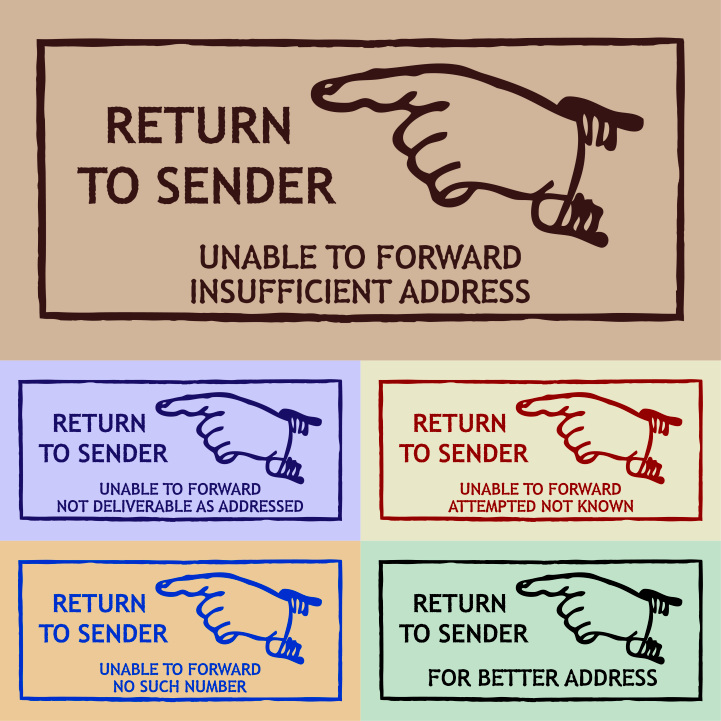
We don't know the answer yet. Maybe you moved without leaving a forwarding address or the forwarding order expired. Possibly your money went missing after a clerical worker or bookkeeper made a mistake. Maybe someone died and you lost track of the decedent's property. There are many other possible explanations but after our company completes its research, we'll know much more and report the real reason to you so hopefully it won't ever happen again. This is a very important part of our service because it helps you prevent future losses.
I'm very careful when handling financial matters so how is it possible that I overlooked such a large amount of money?
You weren't necessarily careless at all with your money because you probably never received the money in the first place or were never even expecting it. Even President Obama with his huge staff had some unclaimed money in a fund.
My relatives, friends and advisers tell me this might be a ripoff. Can you convince me otherwise?

They all want to be helpful but may not have enough knowledge of unclaimed property matters to advise you properly.
- We pay all expenses and never receive any money until we actually recover money for our clients. Ripoffs always involve advance payments of some kind and don't operate with contingency agreements.
- After we receive our client agreement, we immediately disclose the name of the holding agency so our new clients can call or e-mail them directly to verify the good news. Ripoff operations can never provide this type of validity check.
- Ripoffs target people who are uneducated and gullible. Most of our clients are educated, sophisticated individuals who would never allow themselves to be ripped off.
- With $100 billion languishing in real unclaimed asset accounts nationwide, there's no logical reason to believe we would ever need to fabricate phony assets.
- Auditing databases for unclaimed funds and then tracing and contacting the rightful recipients is very time consuming and expensive work. Why would we incur these expenses if we were running a rip-off?
- Cash Recovery Now is a member of R O P, The Righful Owner Project, which has been created to accredit and verify the background, methodology and ethical practices of member firms. Members are required to pass a background check and must commit to disclosure standards of practice, ethical standards of practice and procedural standards of practice and must also commit to following all applicable local, State and Federal laws. By doing so, the industry becomes self-regulated, and consumers can work with member firms and individuals with much more confidence.
I've heard many times, "If it sounds too good to be true, it probably is." Isn't this adage always correct?
No. "The old adage, 'If it sounds too good to be true, it probably is' isn't always correct. In fact, the suspicion, cynicism, and doubt that are inherent in this belief can and does keep people from taking advantage of excellent opportunities."

- Richard Carlson, bestselling self-help author of Don't Sweat the Small Stuff
I'm extremely careful with money. If someone owed me a substantial amount of money, wouldn't I always know about it?
When a reputable company informs you that your money is languishing in an unclaimed asset fund, you can be almost 100% certain that it's true so don't let your ego get in the way of the benefits to be gained from the knowledge and experience of others.
Is it possible I have more than one claim?

Yes. In fact, many of our clients file multiple claims with the same government agency.
What are unclaimed money funds?
These are escrow accounts controlled by government agencies that hold money until valid claims are filed by the rightful owners or the money is confiscated through a legal process known as escheatment.
What assets are transferred to unclaimed money funds?

Here's a partial list:
- Crime Victim Restitutions
- Failed Bank Deposits
- HUD/FHA Refunds
- Lost Oil and Gas Royalty Payments
- Matured or Terminated Insurance Policies
- Outstanding or Stale-dated Checks
- Surplus Auction Proceeds
- Missing Tax Refunds
- Uncashed Death Benefits
- Uncashed Money Orders
- Uncashed Payroll Checks
- Unclaimed Inheritances
- Unclaimed Utility Deposits
- Dormant Savings and Checking Accounts
- Unknown Trust Funds
- Unredeemed Savings Bonds
- Unused Gift Certificates
Is the claim process difficult?

The government agencies holding unclaimed property have strict requirements that must be followed to the letter before claims are approved and reimbursements are made. As a result, many claims are denied that would have been approved had they been handled correctly.
The claim process is a regulatory labyrinth controlled by government bureaucrats strewn with obstacles for unsuspecting claimants so it's judicious to hire a knowledgeable and experienced guide to help you navigate the maze successfully. We'll be your guide, handle all the paperwork for you and keep you informed throughout the entire process.

In fact, because the claim process has so many pitfalls for the unwary, there are many valid reasons why claimants should hire us to pursue their claims even if they do discover the agency that's holding their unclaimed property.
What are the most common mistakes people make when they file their own claims?

Here's a partial list of mistakes, not in any particular order:
- Affidavits or empowering documents are omitted.
- Affidavits or empowering documents aren't notarized.
- Affidavits or empowering documents are signed by the wrong person.
- The required proof of address is omitted or unacceptable.
- The required proof of payment is omitted or unacceptable.
- Copies are submitted instead of originals.
- Not all required documentation is submitted.
Is the claim process really that complicated?

Many claims are extremely complicated. For example, money frequently gets lost and transferred to unclaimed money funds as the result of business mergers. When working those claims, asset locators must provide legal evidence of the merger in addition to all the other requirements such as affidavits, empowering documents, proof of payment, proof of address, etc.
How long is the claim process?
The claim process varies from agency to agency. Most claims we file on behalf of our clients are approved and paid within 30 to 120 days.
Upon approval of my claim, how are disbursements made?
Disbursements are always made payable to our clients and never to Cash Recovery Now.
Who pays the expenses?

Cash Recovery Now pays all expenses out of its own pocket so our clients receive their share with no deductions. Some of our competitors deduct any expenses incurred from the total and then pay you the percentage from the remaining amount.
In some matters, court approval is required before claims are approved so an attorney is necessary. When an attorney must be retained, his or her fees are always disclosed in our client agreement. However, these attorney fees are always contingent upon the successful recovery of the money. This means if our attorney is unsuccessful in recovering the funds, you will not be charged by the attorney.
In addition to all the preliminary expenses mentioned above, after we're hired by our clients we have the additional expense of researching, preparing and filing claims that often are very complicated. This tedious work consumes many days of our time but is an essential part of our service.
In the end our recovery efforts are almost always successful but money is not automatically refunded so during the entire claim process we always face the risk that for many reasons that are totally beyond our control, a claim will be denied. If this happens, we receive absolutely no reimbursement for any of our expenses while our client pays nothing.
Will you ever ask me for money or a credit card number?

No. We never charge up-front fees because all expenses during the claim process are paid by us. There's absolutely no risk or liability on your part.
I have a very common name. Are you totally certain I'm the person with the unclaimed property?

We're extremely confident that our preliminary research is accurate but after we receive our client agreement from you, we may need to ask you a few questions to determine with absolute certainty that you're the person who is entitled to recover the money.
How much is your contingency fee?

Please contact us to ask about our contingency fee which varies and is determined by the amount of risk, work, time and effort involved on our part to uncover the unclaimed assets, locate and contact the rightful claimants, obtain the necessary documents, file the claims when necessary and successfully resolve the matters.
The government's contingency fee is 100%! This means if you fail to file a valid claim before the deadline, agencies that escheat will confiscate all your money.
What is a contingency fee?
It's a fee that is payable only if the outcome is successful.
Why do you use contingency fees?
Our contingency fees align our interests with those of our clients by making us partners in their claim, provide us the incentive to resolve their matters quickly and efficiently and motivate us to recover as much of their money as possible.
Why do you charge so much?
Returning money to its rightful owners is difficult, time consuming and expensive work.
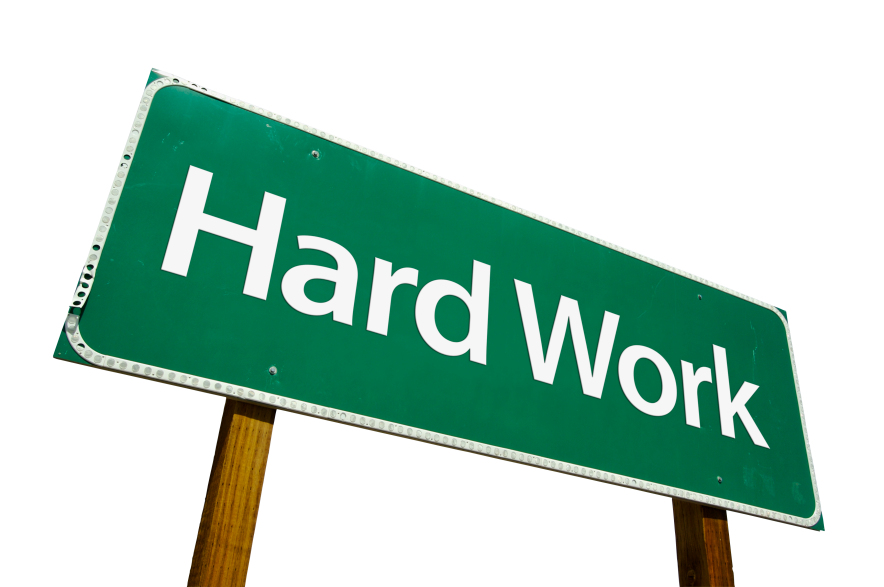
Our first task is finding the databases of unclaimed property. This search is most challenging because there are thousands of unclaimed money funds nationwide, many difficult to find or totally hidden from view. Many agencies charge for their databases so often we must incur this expense. Many agencies furnish databases in obscure file formats or even on printed sheets that we must convert before we can audit them effectively.
Our next task is finding the rightful recipients of the money. We live in a mobile society so tracing and contacting the people who are the rightful owners of the unclaimed money is difficult because the last address we've been given is normally wrong. In fact, on many databases we audit, no address at all is provided. As a result, much of the mail we send is returned as undeliverable.

After we do reach rightful owners who agree to become our clients, we must assemble the documents necessary to prove their claims. Unfortunately, some people don't cooperate as promised so their claims are never filed.
The claim process itself is often difficult because each agency has it's own rules and procedures that must be researched and followed to the letter.

However, our most difficult task is convincing people that they really do have the right to recover money provided that they file a valid claim before the deadline. With $100 billion of real money languishing in unclaimed asset accounts nationwide, it's seems illogical to us that anyone would think we would resort to fabricating phony assets but the fact is, when we reach out to the rightful recipients of the money to inform them of the government "rip-off", many of them take no action for fear we are attempting to rip off them! This situational irony would be amusing if it weren't so tragic.It really shouldn't be that difficult to return money to its rightful owners but most of the time it is!
How does the governmental confiscation of unclaimed money operate?
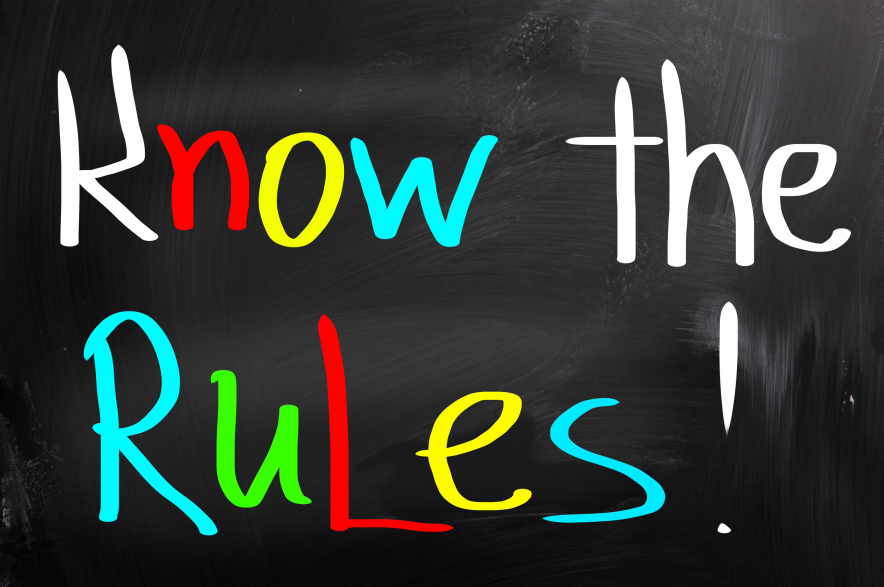
To understand the laws that authorize the confiscation of billions of dollars annually, imagine that someone said to you, "Here's $500 million. Invest the money and keep the interest. The money really belongs to others but you're not required to trace any of them no matter how much money they are owed. If the rightful owners should discover on their own that you're holding the money AND file valid claims to recover the money under rules that you establish and judge, you must give them their money back. However, if they fail to find the money or file their claims before the deadline, they lose all rights to claim their money and you can keep it all permanently." Given that generous arrangement, would you make the maximum effort to find the rightful owners?
How many people do you contact about unclaimed funds?
Unearthing unclaimed assets and then locating the rightful claimants is labor intensive and expensive so we rarely send out more than 20 letters a day. You did NOT receive a mass mailing. Your letter was personally signed by hand and mailed with regular First Class postage. We don't mail nearly enough letters to qualify for bulk mail rates.
What entities are on the databases you audit searching for unclaimed funds?

On our databases there are individuals, large corporations, small corporations, LLCs, deceased persons, police departments, law firms, hospitals, physicians, trustees, government agencies, banks, title companies, insurance companies, private organizations and many more.
Why don't these entities file claims to recover their own money?
Here are the main reasons we've discovered:
- They don't know about the missing money.
- They've been notified about the missing money but don't believe it.
- They're looking for the money themselves but can't find it.
- They're hiding the money from creditors, a spouse, a business partner or the government.
- They've hired employees or independent asset locators to look for the missing money who are unsuccessful.
How much money is languishing in unclaimed property funds nationwide?

We estimate the total is a staggering $100 billion! That's much more money than the net worth of the richest person on earth.
What is the largest unclaimed amount of money you've discovered recently?
On a current database we audit, an LLC is currently owed $474,249.88. We have seen lists in the past where companies are owed millions. The number of Fortune 500 companies on the databases we audit as well as the amount of money they are owed are shocking.
What is the largest amount of money you've recovered for a client.

In October of 2013, we recovered more than $87,000 for a client in the Real Estate business. His unclaimed money was not published on any website.
Cash Recovery Now has NOT contacted me. Will you search your databases to determine if I have any unclaimed property?
We always start with the money and trace it back to the proper owners. Because there are thousands of unclaimed property funds nationwide, starting with people and then looking for their money would be an impossible task.
How did you find me?

We subscribe to several national databases. We are excellent researchers. We not only found your missing money but we also found you! After we recover your money, you'll be very pleased we made the effort to locate you. For your protection, Cash Recovery Now follows a strict privacy policy. Your private information will never be shared with anyone except the people within the government agency that are handling your claim.
Are you a collection agency, bill collector or loan company?
Cash Recovery Now is NOT a collection agency, bill collector or loan company nor do we work with them unless they have unclaimed funds. The unclaimed property we recover on behalf of our clients is NOT unpaid bills from their clients or customers and nothing needs to be paid back. In fact, our business is the complete opposite of collections. A letter or phone call to you from our company means someone owes you money.
Is your company seeking team members who fit your vision for your business?

Are you unemployed, underemployed or fed up with your current job? Are you interested in being a part of an exciting industry working to reunite people with their money? Do you possess the self discipline to work independently and successfully from your own home, full-time or part-time? Do you have strong computer skills with the ability to organize data into spreadsheets and create a mail merge from them? Do you have prior experience searching for addresses or phone numbers over the Internet? Do you write and communicate well? Are you a team player?
If you can answer yes to all those questions, Cash Recovery Now might be the right place for you so please send us your resume.
Why should I hire Cash Recovery Now?


- We've located recoverable, unclaimed money that we believe belongs to you.
- We are research and recovery professionals who are committed to very high professional standards.
- We are claim experts with an extensive knowledge of the claim process.
- We NEVER charge up-front fees.
- We pay all expenses for claims.
- We charge nothing if no recovery is obtained.
- We return phone calls and e-mails promptly.
- We keep our clients informed throughout the entire process.
- We protect the privacy of our clients at all times.

